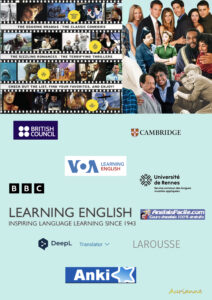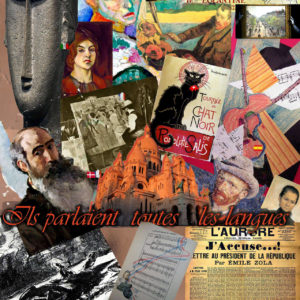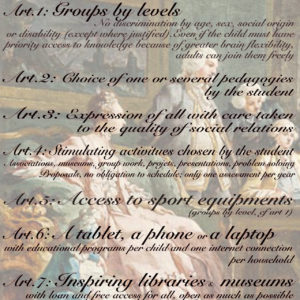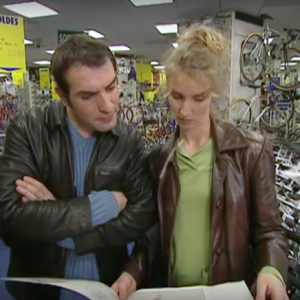Language is above all a means of communication. “People need other people to live. So that we can exchange and support each other, we communicate with each other. Communication in the broadest sense takes many forms: we exchange information, share feelings, show affection and sometimes create situations of conflict. We use communication to develop our identity and to obtain other people’s opinions about our behaviour. Through communication, a common space can be created in which the attention of all participants can be brought together. (…) Language is only a small part of the whole spectrum of possible communication, but it plays a very important role.” (https://www.contakt-enfance.ch/fr/bon-a-savoir/communication-et-langue.html)
In the newspaper Le Monde, academics call for urgent reform to simplify spelling, because it is full of archaisms that do not help understanding but are a barrier to learning, particularly for children and adults from disadvantaged backgrounds or whose or for whom French is not their mother tongue.
« Pourquoi il est urgent de mettre à jour notre orthographe » – Le Monde: https://www.lemonde.fr/idees/article/2023/10/15/pourquoi-il-est-urgent-de-mettre-a-jour-notre-orthographe_6194603_3232.html
At the same time, the conservatives published an article in Le
Figaro in defence of a fixed French language as a marker of identity and
they are prescribing more dictations to make schoolchildren conform.
«Le français ne va pas si bien, hélas» – Le Figaro: https://www.lefigaro.fr/langue-francaise/actu-des-mots/le-francais-ne-va-pas-si-bien-helas-20230524
Linguistic racism exists.
Since the revolution and then the Universal Declaration of Human Rights abolished discrimination on grounds of religion, sex, opinion or skin colour, mastery of the incongruities of language has become a new tool for dividing citizens into classes. The fundamental idea of the Reaction is that there are natural differences between people, that some are made to succeed and others to suffer: The prefix aristo- means “the best” and the suffix -cratie means “in power”. To maintain this aristocracy, they need to be able to recognise each other in order to re-establish privileges and destroy equal access to opportunities.
Language is a tool of communication; its raison d’être is to build together, to to turn towards others. Reactionaries use it to divide and denigrate. They use it to create artificial barriers to the integration of migrants or any other speaker of non-pure French.
Our ability to unite citizens is the best guarantee of the civilisation.
Ancient Rome is often cited as an example of integration. Barbarians there had full citizenship and were given access to the most prestigious positions. But Ovid reminded us that “Yet, there is no good barbarian poet”. The mere fact that such a person could be said to be a barbarian, even for a simple lack of mastery of the subtleties of the language, has fostered a feeling of “them and us” that is still very much alive today. The disaster of Andrinople created two fratricidal factions. This division led to the fall of the empire. Rome was rich in immigration and its immigrants were integrated, but not fully. The two factions killed each other. The Huns, who were only a handful, watched in disbelief as Romans killed Romans and razed Rome to the ground.
L’empire optimiste – Les Romains face à l’intégration des barbares: https://laviedesidees.fr/L-empire-optimiste
There can be no integration if the condition of access to full recognition means abandoning one’s native language, a regional dialect
or a typical accent. Our society rejects those who do not have a perfect command of the language. Some could have integrated if the path of
were not littered with absurd and archaic obstacles.
We have to accept that the French language has more speakers outside its country of origin and outside the upper classes. These ‘others’ have French either as their first language or as an additional language. Are Canadians, Ivorians, Swiss, Vietnamese, Belgians and others less ‘noble’ because of their different use of the language? Is a hierarchy desirable?
If there were a hierarchy, there would be an invariable “good French”. But that doesn’t exist, language evolves. It belongs to its speakers. From the very first verses of Ronsard, Molière, Voltaire and Alexandre Dumas, it’s clear that the old masters understood that French had to evolve with the times. In fact, when you read them, you can see that the language has evolved. Shakespeare is always performed in the original text, where there was no fixed spelling of words and where Shakespeare cheerfully invented many words, some of which are still used today. To save the language, let it live and grow. Spelling reform is necessary to ensure the cohesion of our societies.
CHRONIQUE. Faut-il réformer l’orthographe française ?: – France Info: https://youtu.be/n4lerQpM-TM?feature=shared
Le temps est venu de moderniser et de démocratiser l’orthographe – Inégalités: https://www.inegalites.fr/Le-temps-est-venu-de-moderniser-et-de-democratiser-l-orthographe
Du «racisme» linguistique : https://www.ledevoir.com/opinion/libre-opinion/772016/libre-opinion-du-racisme-linguistique?
Langues, accents: les discriminations oubliées – l’express: https://www.lexpress.fr/societe/langues-accents-les-discriminations-oubliees_1777999.html
The pervasive problem of ‘linguistic racism’ – BBC: https://www.bbc.com/worklife/article/20210528-the-pervasive-problem-of-linguistic-racism
‘You can’t even talk English, so don’t talk!’ How linguistic racism impacts immigrants in the UK: https://theconversation.com/you-cant-even-talk-english-so-dont-talk-how-linguistic-racism-impacts-immigrants-in-the-uk-182173
Opinion, Everyone has an accent – We need to set aside the illusion that there is a single true and authentic way to speak – New York Times: https://www.nytimes.com/2018/07/14/opinion/sunday/everyone-has-an-accent.html
English is not pure or in peril: https://stancarey.wordpress.com/2017/11/25/english-is-not-pure-or-in-peril/
Accents and Social mobility: https://www.suttontrust.com/our-research/speaking-up-accents-social-mobility/








